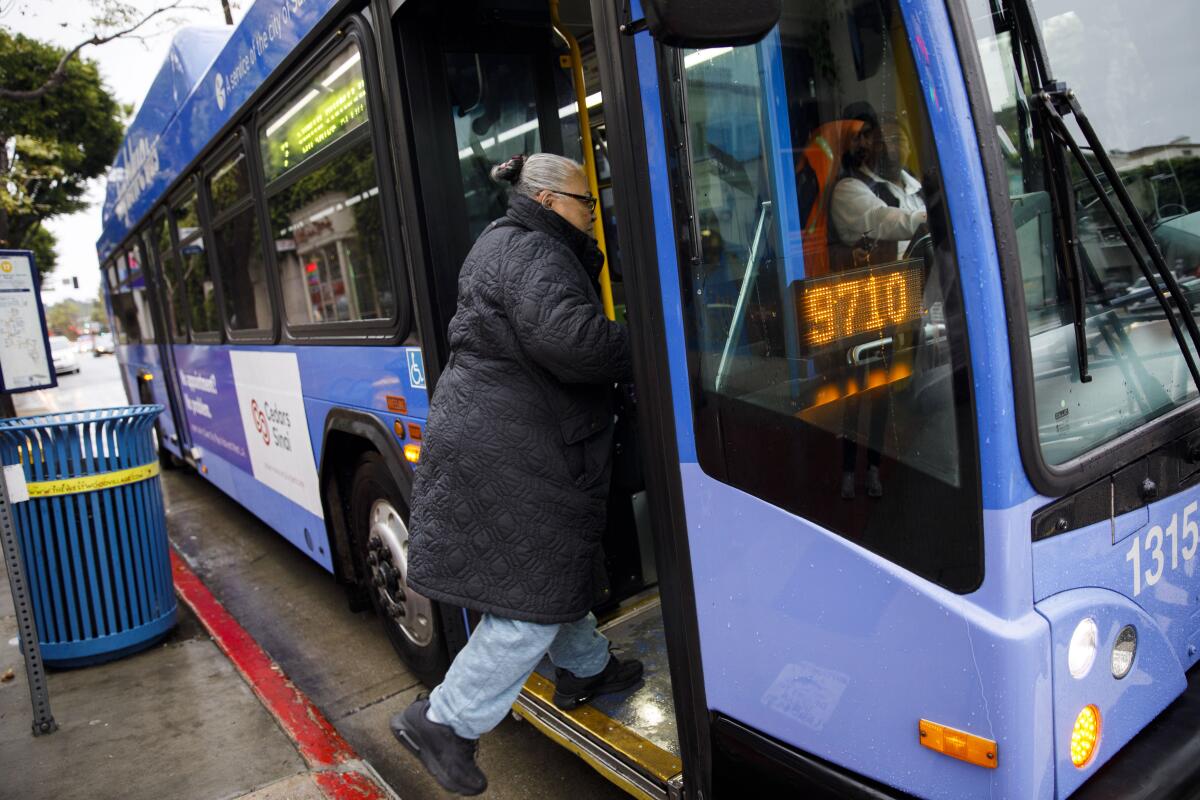Campaign seeks to protect domestic workers from everything from fires to coronavirus

- Share via
As fires raged in California, Socorro Diaz found herself cleaning homes in neighborhoods that had been evacuated.
The smoke and ash posed a danger, but employers did not provide the 39-year-old house cleaner with any protective equipment.
Diaz, a leader with the Graton Day Labor Center in Sonoma County, did not want to lose her job so she kept on working. The consequences came later: respiratory problems so severe that a doctor prescribed her an inhaler that she used for weeks.
Her experience is far from unique. In the midst of disasters, such as fires and the current COVID-19 pandemic, domestic workers have repeatedly found themselves on the front lines with little protection.
Although there are over 300,000 domestic workers employed as housekeepers, nannies and caregivers throughout the state, they have long been excluded from basic health and safety protections in the workplace.
This week, the California Domestic Workers Coalition launched a campaign to pass legislation that would change that.
“Home care workers, care givers, house cleaners and nannies are on the front lines of the current pandemic,” Kimberly Alvarenga, director of the California Domestic Workers Coalition, said during a virtual news conference on Wednesday. “We can no longer leave workers behind in these times of crisis. Now is the time to make change.”
In February, Sen. Maria Elena Durazo (D-Los Angeles) introduced the Health and Safety for All Workers Act, which would eliminate the exclusion of “household domestic service” from protections provided by the Division of Occupational Safety and Health.
In general, state and federal workplace safety codes requiring employers to provide safe workplaces do not apply to domestic workers. Additionally, if a domestic worker refuses to work in hazardous conditions, there’s no legal protection from retaliation, including firing.
The bill is being sponsored by the California Domestic Workers Coalition, California Employment Lawyers Assn., Equal Rights Advocates and Worksafe.
If passed, SB 1257 would afford domestic workers the same legal rights as other workers to health and safety training and protective equipment. They would also be protected against retaliation when advocating for their own health and safety at work.
“Domestic workers -- who are primarily immigrant women -- have been excluded from basic labor laws, including health and safety, for far too long,” Durazo said. “This exclusion has life or death consequences for those workers every single day, but especially in times of crisis.”
The fate of the bill is unclear, as the Legislature won’t return until at least May 4 and all proposals face obstacles to being considered in time during a very limited legislative session.
During the news conference, Durazo cited cases of workers risking their lives during wildfires to defend properties and pets of clients and to clean up ashes without protective gear. In 2019, during the Getty fire, housekeepers headed into work after their bosses didn’t tell them neighborhoods were under mandatory evacuation.
Doug Boeschen manages a vineyard and winery with his wife in Napa. They have four full-time employees and dozens of part-time workers.
The couple also employ domestic workers.
“The domestic workers in our home are equally important and deserve the same protections as the workers in our vineyard,” he said.
Aleja “Lee” Plaza, an L.A.-based private home care worker and worker-leader of the Pilipino Workers Center, works the graveyard shift caring for a 98-year-old woman in an assisted living facility.
The facility and the home care agency that employs 60-year-old Plaza did not tell workers that any of the residents were sick, she said. She did not receive protective equipment until last week.
Plaza is now under quarantine awaiting the results of her coronavirus test.
“We face health and safety hazards even during normal times,” Plaza said. “In my experience, the home care agencies and private families I work for do not provide protective equipment, information about hazards and even enough safety training.”
“Now more than ever, you can see how essential our job is as home care workers,” Plaza said. “We cannot just stay home, we’re out there keeping society running. But we need to be taken care of as well.”
More to Read
Sign up for Essential California
The most important California stories and recommendations in your inbox every morning.
You may occasionally receive promotional content from the Los Angeles Times.















